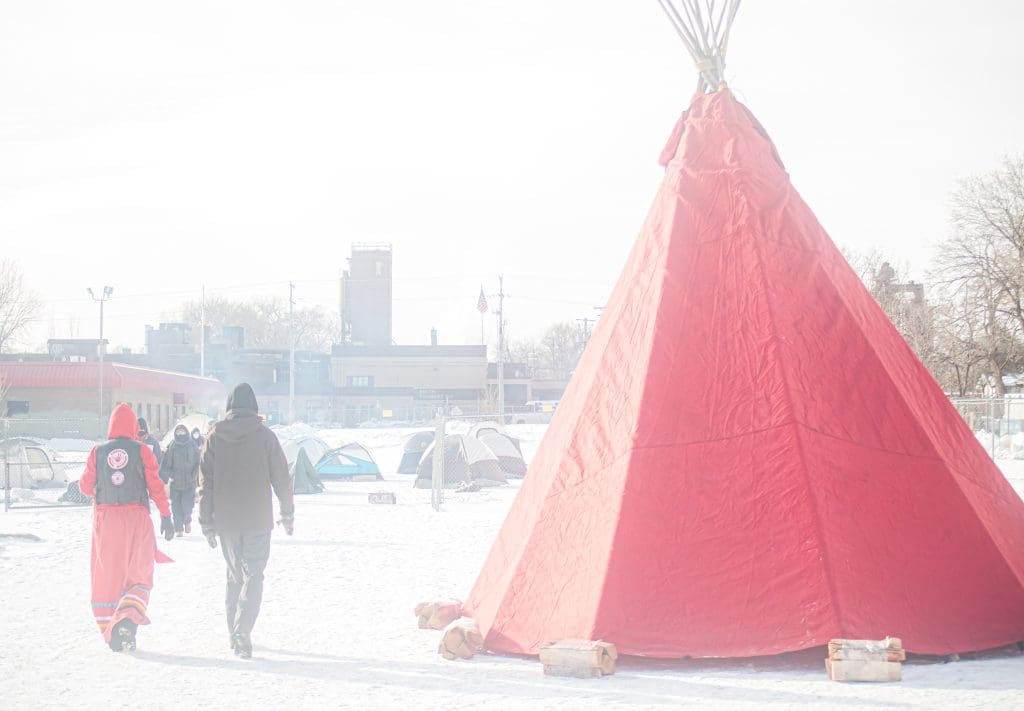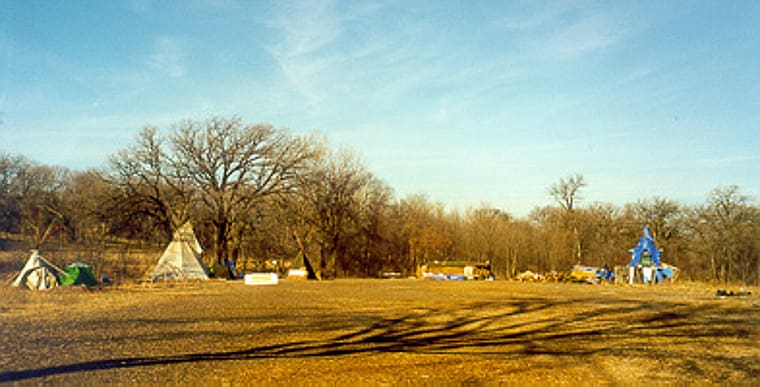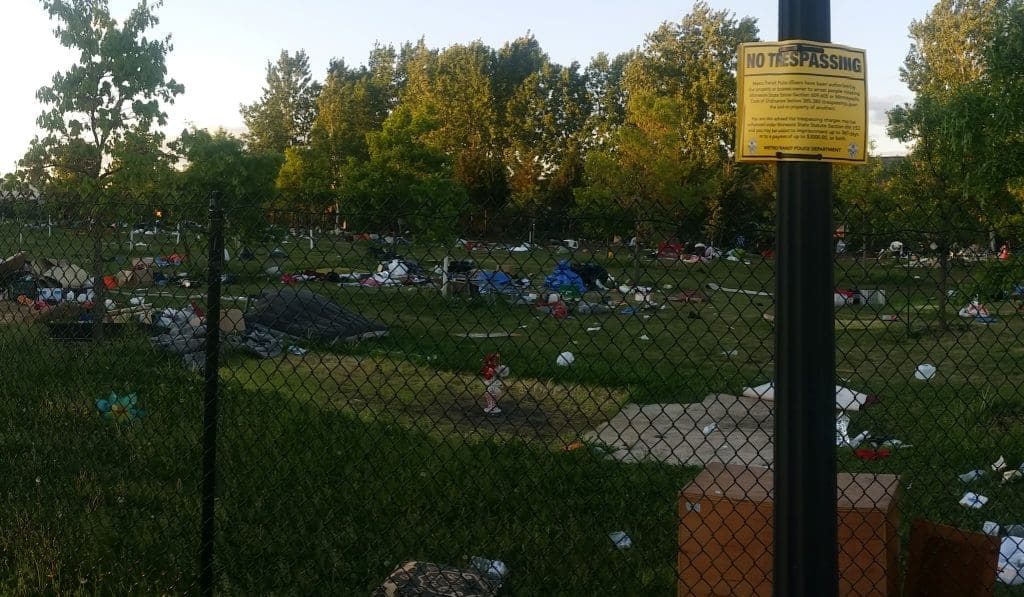Antinote: We received this press release from an anonymous source early Tuesday morning, 21 Feb 2023.
CONTACT: Defend the Depot (defendthedepot@proton.me)
Neighborhood Residents Occupy Roof Depot site, Demand the City Call Off Demolition Plans
Nearly a week before demolition is slated to begin at the Roof Depot warehouse, East Phillips residents and allies are making it clear they will not stand by if the city ignores their needs
MINNEAPOLIS, MN, Feb 21, 2023. Press Conference at 1pm at E 27th St & Longfellow Ave.
At dawn on the morning of Feb 21 a group of Indigenous relatives and allies gathered for ceremony and began to set up camp at the Roof Depot site in East Phillips. If the city will not heed warnings about the risks of demolition and construction, say residents, they will protect their community themselves.
“Minneapolis is acting on environmental racism that will further the genocide of Indigenous people,” says East Phillips resident Rachel Thunder. Thunder and others participating in the occupation see the city’s demolition and construction plans for the Roof Depot as part of a wider policy of violence and negligence towards Black, Indigenous, and People of Color (BIPOC) residents of Minneapolis.
“Our children and elders are going hungry, our people are going houseless, and we are being swept around like trash,” continued Thunder, “If action is not taken by the city to meet all our demands for justice, community members of East Phillips and close partners are prepared to maintain our current occupation of the Roof Depot. We must stand up for the water, for the air, and for the land. The next generation is counting on us.”
The community-led group has issued the following list of demands to the city:
- Total relocation of the Hiawatha Expansion Project
- Hand over control of Roof Depot site to the community
- Plans to remove of Bituminous Roadways and Smith Foundry*
- Enact a moratorium on encampment evictions**
- Provide funding for peer support workers
- Invest in pilot programs to provide shelter and services to the houseless community like the former navigation center
- Provide funding for the community’s vision for an indoor urban farm at the Roof Depot site
A press conference will be held at 1:00pm today, Feb 21.
For generations, East Phillips, a neighborhood of over 70% residents of color and home to the majority Indigenous Little Earth housing development, has been treated as an environmental sacrifice zone. For the last century, East Phillips has been zoned for heavy industrial pollution. According to US EPA data, the area within a one-mile radius of the Roof Depot site ranks nationally in the 89th percentile for diesel particulate matter, the 99th percentile for Superfund Proximity, and the 96th percentile for hazardous waste proximity.
The health effects of this pollution are already clear and present among the neighborhood’s population. According to data from the Minnesota Department of Health, residents of East Phillips sustain some of the highest rates of asthma, lead poisoning, and heart disease in Minnesota, tied only with North Minneapolis.
Environmental justice advocates and researchers have long pointed out that majority BIPOC and low-income neighborhoods are systematically subjected to disproportionate degrees of toxic exposure and damaging air pollution — a fact the city of Minneapolis have publicly acknowledged. But as the East Phillips Neighborhood Institute (EPNI) has argued, despite the City Council’s July 2020 declaration that racism is a public health emergency, the city’s plans for the Roof Depot indicate little commitment to change.
The area around the Roof Depot warehouse is a former Superfund site, and the Depot building itself sits atop a reservoir of legacy arsenic contamination. Public health and environmental experts have spoken out about the risks of demolishing the building and exposing arsenic beneath the site and releasing it into the community. The city’s own Environmental Assessment Worksheet (EAW) acknowledges the risk of “fugitive” dust, which experts say will likely contain arsenic and other contaminants, but the city declined to carry out more intensive environmental studies and has delivered no information about protection plans to those living near the demolition site.
The city’s plan to build an expanded public works truck yard and maintenance facility at the site following demolition would usher in a large influx of traffic, additional diesel pollution, and more hazardous waste transport in the already environmentally burdened area. The plan also fails to support the city’s public environmental justice commitments. Residents say they have had enough.
As community members worked together to prop up tipi poles and a warming fire, a sense of resolve permeated the cold morning air. Residents say they have participated in the city’s process, worked through the courts, aired their concerns, and provided a sound alternative for a sustainable community-driven renovation of the site. Their plan includes a cooperatively-owned facility with an indoor urban farm, a job training site, affordable housing, a bike repair shop, a cultural market, a rooftop solar array, and much more. Now they are here to make it clear that despite demolition being scheduled for Feb 27, their plans haven’t changed.
Contact defendthedepot@protonmail.com for more information.
###
*Bituminous Roadways and the Smith Foundry are sources of legacy contamination near to the Roof Depot site.
**According to a Wilder Foundation Study Indigenous people make up 1% of Minnesota’s adult population, but a disproportionate 13% of the houseless population. A survey of a large encampment in Minneapolis in 2020 found that nearly half of the 282 people living there were Native.
Featured image source: Mikhamik





